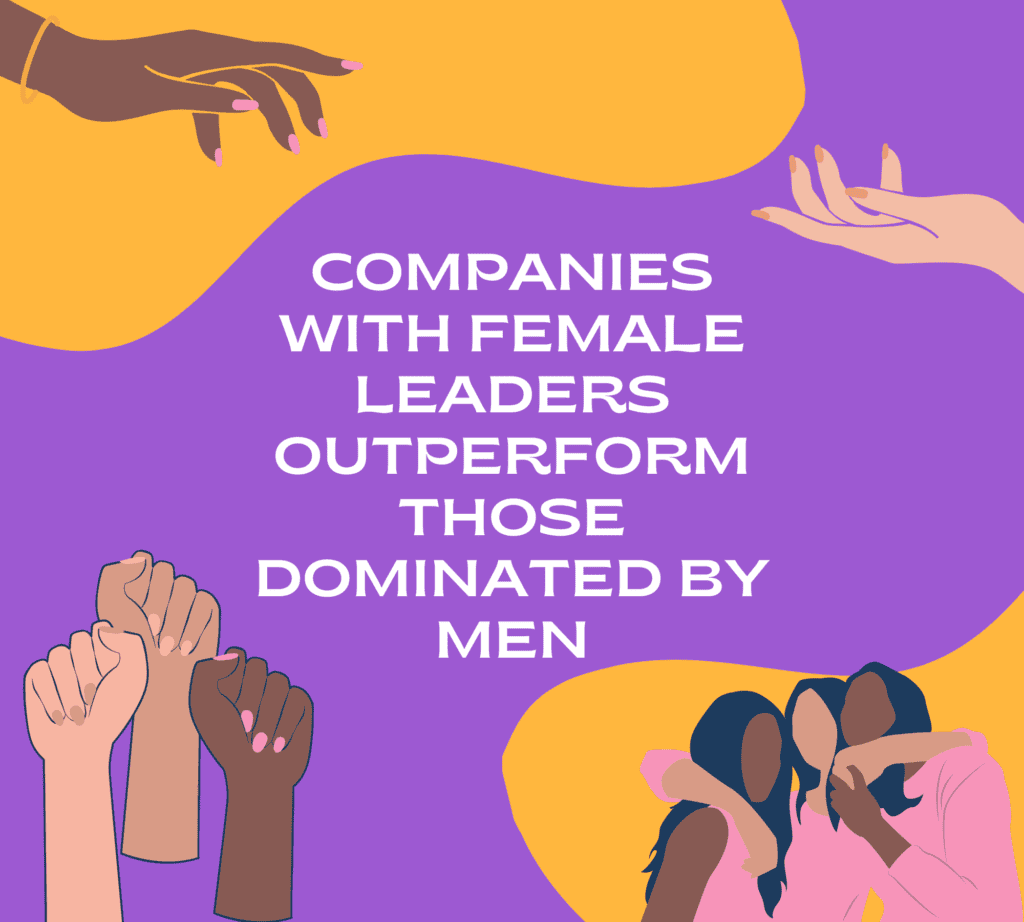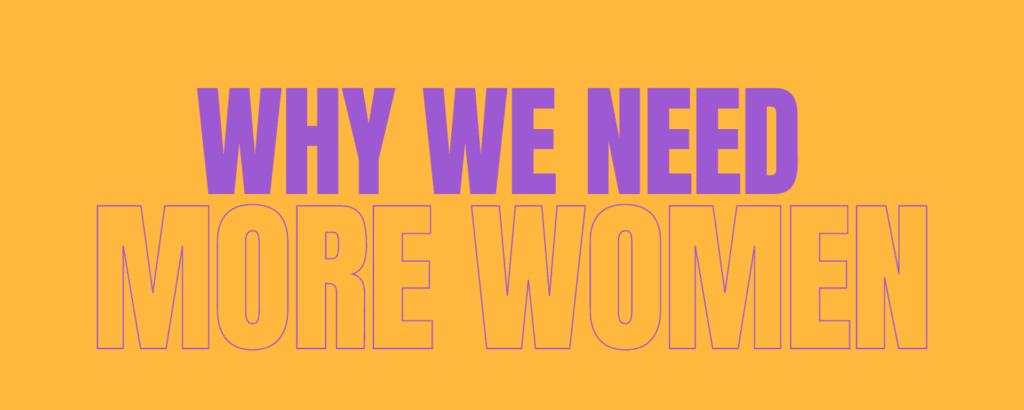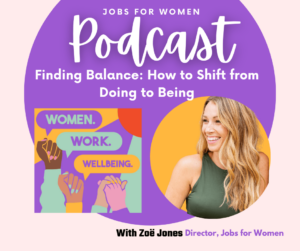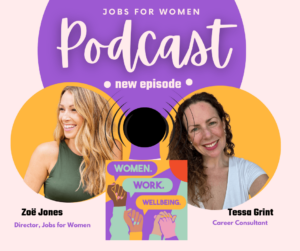
Unlocking Your Potential with the Akashic Records
In this week’s Women, Work, Wellbeing podcast, I chat with Helen Snook, holistic wellness coach and Kundalini yoga teacher, about

At Jobs for Women, we believe in progress over perfection. We understand that every organisation, regardless of its size or budget, is at a different point in its journey toward gender equality. Our goal is not to critique where you stand today, but to recognise and support your commitment to moving forward.
We are committed to

While statistics such as the gender pay gap can provide valuable insights, they are merely a snapshot. They do not fully encapsulate the ongoing efforts an organisation is making to ensure an equitable workplace. Instead of focusing solely on current figures, we are more interested in understanding the steps your organisation is taking toward a gender-balanced future.
Whether you’re a budding start-up or a large multinational corporation, commitment to gender equality is not determined by the size of your organisation or the depth of your pockets. We’ve partnered with a diverse range of companies, all united by a shared vision: to build a workplace where everyone has an equal opportunity to thrive.
By collaborating with Jobs for Women, you’re not just advertising job roles; you’re making a statement. You’re positioning your company as one that acknowledges the need for change and is actively working towards it. We’re here to amplify your dedication and help you communicate that commitment to a vast audience of potential candidates.
Our approach is simple. We want to partner with organizations that, irrespective of where they currently stand, are earnestly dedicated to making a difference. If you’re ready to champion gender equality and shape a brighter, more inclusive future, we’re here to support, guide, and stand by your side.

While both genders browse jobs similarly, men and women apply to them differently. For example, research shows that women feel they need to meet 100% of the criteria to apply for a job, while men usually apply after meeting about 60%. (source Tara Sophia Mohr. “Why Women Don’t Apply for Jobs Unless They’re 100% Qualified.” Harvard Business Review. August 25, 2014.
To encourage more women to apply for roles, we advise companies to be considerate about the number of requirements listed and ask themselves what’s truly a must-have and what’s merely a nice-to-have
Research tells us that women are 16% less likely to apply to a job after viewing it and also apply to 20% fewer jobs than men. Therefore to attract more women, we expect the companies we endorse to focus on diversity and the gender pay gap in their recruitment process. In addition, we expect companies to have fair and transparent hiring processes.
Academic research by The University of Waterloo and Duke University defined a series of words that socially, culturally, and historically carry a stereotypical weight towards a particular gender. Therefore, we encourage companies to be aware of the risk and implications of gender-bias job advertisements and expect them to take proactive steps to make a change.
From working from home and adjusted hours to being able to change their work schedule, flexibility is one of the most powerful ways companies can attract and retain female talent.
Normalising a flexible approach to work for all employees reduces the stigma attached to taking time for childcare or career leave. Additionally, this promotes shared responsibility for unpaid care, which is crucial in the fight for gender equity.
Shared Parental Leave (SPL) gives parents greater flexibility in how they care for their children.
Creating a culture that promotes and supports equal and shared responsibility for parents and carers enables women to continue their careers and excel in their role.
Whether your company offers gender-neutral parental policies, shared parental leave or adoption leave it’s important that this is communicated in your company culture so during the recruitment process women know they will be looked after should they have children whilst in the company.
Leaders inspire those within the organisation and those on the outside considering applying for roles, so if a company has more women in senior leadership roles, you will let prospective women applicants know they can rise to the top in your organisation. So while achieving diversity will have a positive impact at all levels, an increased focus on achieving diversity in leadership will significantly impact the business.
Equal pay for an equal value of work is a legal requirement in the UK. However, unequal access to opportunities means the gender pay gap is still prevalent, primarily due to the lack of women in leadership roles. We endorse companies committed to placing more women in leadership roles and proactively working to close the gender pay gap.

Profitability: Women in the workplace (and gender diversity in general) and profit go hand-in-hand. For example, Companies with higher levels of gender diversity have been shown to have better financial performance, higher profitability, and improved market share than companies with lower diversity.
Inclusive culture: Hiring women in business helps to bring diversity into the workplace, leading to a more inclusive culture and a range of perspectives that can drive innovation and better decision-making.
Reputation: Companies that are seen to prioritise gender diversity can benefit from a positive reputation, attracting both customers and top talent. Our community of women values companies that prioritise DE+I and policies such as flexible working.
Better Employee Satisfaction: Women in the workplace can positively impact employee morale and job satisfaction, leading to lower turnover and improved retention rates.
Improved Market Insight: Women often bring unique experiences, empathy, and insights to the workplace, helping companies better understand and cater to diverse consumer markets.

At Jobs for Women, we look for these qualities in our partners:
1. Committed to recruiting and retaining more women in early careers.
2. Dedicated to improving women in leadership statistics (not a token woman at the top).
3. Gender pay gap transparent organisations who actively work towards creating equality across pay.
4. Diversity, Equality, and Inclusion focused.
5. Ready to raise the benchmark for equality for women so other organisations sit up and take notice.
If this is you, let’s talk.


In this week’s Women, Work, Wellbeing podcast, I chat with Helen Snook, holistic wellness coach and Kundalini yoga teacher, about

Have you ever felt like you’re juggling a hundred things—your career, your ambitions, your personal life—but still searching for that

How to Take Control of Your Career: Lessons from Tessa Grint Ever felt stuck in your job, unsure of how

Finding Balance: How to Shift from Doing to Being Life often feels like a never-ending to-do list, doesn’t it? From

Here’s Everything You Need to Know about the Gender Pay Gap + What You Can Do to Earn More Money

How to be Hyper Focused at work Are you constantly feeling overwhelmed, distracted, and struggling to check items off your